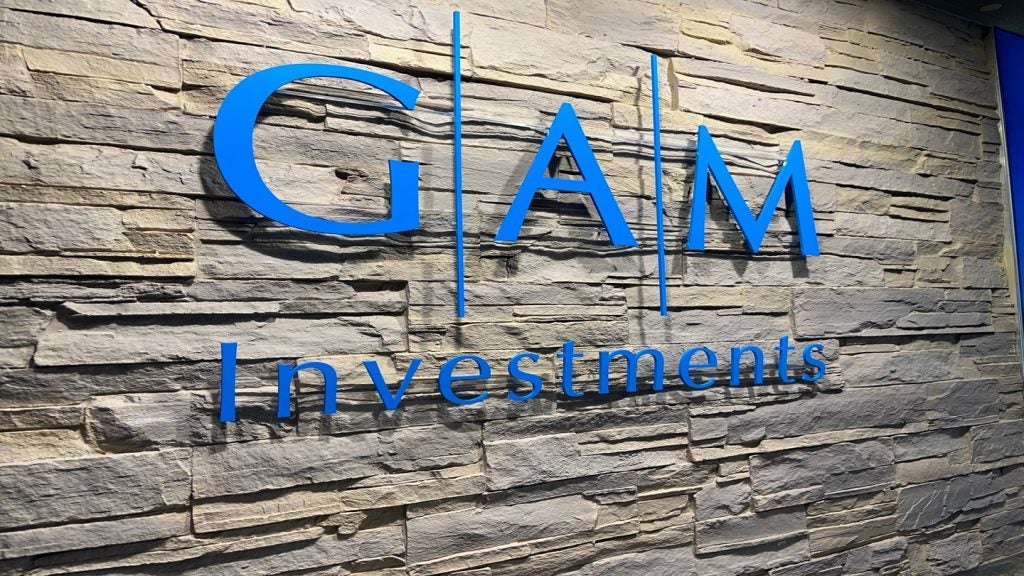
Private banks and wealth managers are implementing a variety of strategies to generate more rigorous ESG data and analysis to capitalise on growing client demand for impact investing. This is because there is a particular need for clearer definitions and taxonomies about what constitute ESG products in a rapidly evolving sector. Paul Golden reports
ESG investment experts have highlighted the need for better ESG data quality and clearer definitions and taxonomies about what constitute ESG products.
The most recent Global Sustainable Investment Alliance (GSIA) 2016 valued assets invested in sustainable investment strategies at just under $23trn, accounting for around a quarter of all professionally managed assets globally.
Impact investing is a small but vibrant segment of the broader sustainable and responsible investing universe in all the markets studied by the GSIA, which defines impact investing as targeted investments aimed at solving social or environmental problems.
Community investing – whereby capital is specifically directed to traditionally underserved individuals or communities – is included in this category, as is finance that is provided to businesses with an explicit social or environmental purpose.
Some of the owners of these assets will be unconcerned about returns as long as their investments are making a positive social impact, others are opportunists. Most sit somewhere in between, looking to mitigate any harm done by companies in their portfolios without compromising on returns.
Last year, Barclays launched a Multi-Impact Growth Fund, investing primarily in specialist third party funds selected as best-in-class based on both their potential for strong financial returns and the consideration of their impact around key social and environmental issues such as climate or demographic change.
Damian Payiatakis, head of impact investing says that in addition to responsible investing (where ESG considerations are brought into the investment process) and sustainable investing, which considers themes such as climate change and population ageing, the bank also focuses on catalytic investing.
“This is where the investment is targeting an outcome alongside financial performance,” he explains. “For a client interested in climate change, this could involve investing in green bonds or an early-stage solar energy firm.”
A spokesperson for Edmond de Rothschild says it has the flexibility to explore new territories and develop strategies combining long term performance and positive economic and social impact. “For example, we have been pioneers in sustainable investments in emerging markets,” she says. “In Africa and Latin America we invest in family owned SMEs active in agroforestry. It can take between five and 15 years to rehabilitate a piece of land and convert it to sustainable agriculture, but the economic and environmental impact is significant.”
Responsible investment is progressively integrated in all the bank’s activities – 94% of its private equity activities are covered by responsible strategies and 60% of its infrastructure debt activities are associated with social infrastructures or renewable energy.
RBC Wealth Management’s approach is to look for strategies that neither exclude companies that operate in a particular sector (negative screening) nor replicate existing indexes based on stale quantitative data, says product specialist, Eleni Karadimitri.
“Instead we direct our research efforts towards strategies that use proprietary, qualitative data and research and – most importantly – engage with underlying companies to drive positive change,” she says. “We want to invest in improving companies willing to adapt to the ESG principles as that is where we believe investment outperformance can come from.”
Insufficient ESG data
Clients are interested in understanding more about their investments as current ESG data is not sufficient to accurately measure an investment’s sustainability exposure and impact, adds Karadimitri. “We have a number of initiatives underway across the bank to address these issues, such as creating our own ESG scores on various funds based primarily on qualitative factors.”
Erika Karp, CEO of Cornerstone Capital reckons more work is needed to develop suitable products, particularly beyond equities. “We can invest in all asset classes – including real assets and cash – in a thoughtful, sustainable way,” she says. “But there is a risk at the moment because many funds are popping up where the managers and construction methodologies are new and/or flawed. Given the momentum in the field, it is essential that these funds are vetted properly so we don’t see product that is simply offered for marketing purposes.”
Globalance Bank was not satisfied with existing ESG offerings, so it decided to develop its own methodology, combining exclusions, sustainable investing and theme-based investing with testing of the ‘future fitness’ of all its investments in all asset classes.
“To illustrate this, we are less interested in the operational ESG data of Volkswagen than systematically analysing the overall impact of its products during their lives on our roads,” says Peter Zollinger, the bank’s head of impact research. “The key question is, are they a force for good or part of the problem when it comes to delivering smart mobility?”
Clients are looking for a contemporary investment approach which gives equal weight to risk, return and impact, he adds. “They understand the interdependence between these criteria and invest in portfolios that are global, long term and highly diversified. A precondition to achieving this is transparency and a business model free from conflicts of interests.”
All portfolio managers of Nordea’s actively managed funds have access to ESG data which is integrated into the investment process and an in-house responsible investments team conducts in-depth analysis, including on-site meetings at production facilities and with the companies explains Vesa Ollikainen, head of client solutions and business development for Nordea Private Banking.
“We also provide advice on products and funds not produced by Nordea,” she continues. “We have set ESG requirements for the partners we want to work with, when giving advice on their investment products. This is our way of ensuring that we are able to provide sound and relevant solutions to our clients.”

Clear taxonomy needed
Products tend to emerge quickly when demand rises as is currently the case, although Ollikainen acknowledges that equity products within sustainable investing outweigh products available for fixed income investing. “Perhaps more importantly, we see a need for a clear taxonomy clarifying what essentially constitutes an ESG product,” she adds. “Without such taxonomy, there is a risk that clients and investors will find it increasingly difficult to manoeuvre as new products emerge.”
Leslie Gent, managing director at Coutts (which has signed up to the UK Stewardship Code, which aims to ensure institutional investors actively engage in corporate governance in the best interests of their beneficiaries) refers to increasing interest from clients in the bank’s house view on responsible investing.
“Our approach to engagement is that it focuses on a number of specific areas such as improved disclosure on risks arising from climate change, respect for basic human rights, executive remuneration and the diversity and independence of company boards,” he says.
In addition to applying the house approach to responsible investing for all investment portfolios, some clients also seek to apply their own positive or negative screens to investment portfolios to reflect their personal values, interests or concerns.
Claire Veuthey, investment research analyst with Wells Fargo Private Bank’s social impact investing team reckons the supply of good quality, targeted products is a limiting factor for clients who are not looking to simply blacklist a given set of company names.
“Most of the mutual funds we see are one-size-fits-all products created to meet the needs of a certain section of social impact investors,” she says. “Last year our team launched several REIT strategies, allowing investors to have the bulk of their assets aligned with their values. We are also working with colleagues to build out the offering of external managers in the remaining fraction of client portfolios, for example, in alternatives.”

Globally, institutions such as Dutch and Australian pension funds have pushed their managers to take ESG factors into account while in the US, the California Public Employees’ Retirement System and some religious groups have also been active in this space for some time, she observes. “However, the growth in interest in social impact investing from private wealth (HNWIs, family offices or foundations) has been really striking in recent years.”
A paper on UHNWIs, private banks and sustainable finance published by the sustainable finance programme at the University of Oxford Smith School of Enterprise and the Environment last year suggested that UHNWIs were not satisfied with their private bankers’ services in this area and that the supply of sustainable investment advice from private bankers suffered from a number of barriers.
This was attributed to a lack of accurate sustainable investment measurement and reporting, as well as inertia on the part of their bankers constrained by time, a lack of incentives and an absence of training on sustainable finance issues.
Focus on sustainable finance
Encouragingly, the authors of the paper also observed that demand for sustainable finance is likely to increase dramatically in the coming decade as more women and a younger generation inherit more wealth and that a number of private banks and asset managers appear to be increasing the supply of sustainable finance options, including green bonds and sustainable ETFs.
Eugenia Koh, head of impact investing and strategic engagements, private banking & wealth management at Standard Chartered Bank refers to rising interest among investors but also a lack of understanding on what sustainable investing entails and how its benefits go beyond the feel good factor.
“Our approach is guided by the aim of debunking some of the common misconceptions around poor performance and the lack of opportunities for individual investors to participate,” she says. “Demand in sustainable investing has traditionally been driven by institutional investors and family offices, who have ready access to professional expertise, networks and associations. However, fund flows and demographic shifts are indicating a pickup in momentum among individual investors.”
Standard Chartered Bank estimates that AuM in impact investing could grow fourfold or more by 2020, largely driven by the increase in millennial wealth. “Another interesting observation is that with the first generation of wealthy thinking about their legacy, many of these entrepreneurs are also intrigued by and interested in the idea of driving exponential impact through investing in sustainable businesses.”
Next generation interest
There is no doubt that interest in responsible investing is being driven by the next generation of clients, who are in turn influencing their parents, says Gent. “We are also seeing increasing demand from charities who want to align their investment policies with their mission.”
Institutional investors are already quite advanced and experienced in ESG/sustainable investing, agrees LGT group sustainability manager, Ursula Finsterwald, who notes the results of the bank’s 2016 report that more than 40% of clients were already invested in sustainable investments, two thirds wanted to maintain current level of investment in sustainable investments and 30% intended to increase the level of sustainable investments.
“Specific sustainability products are available, although definition and sustainability integration differs and needs closer analysis,” she says. “Transparency on – and integration of – sustainability across the portfolio and different asset classes is rarely available for private investors. There is a strong focus on illiquid private equity products only accessible for qualified investors and limited product shelf for private clients, usually with high risks and/or limited diversification involved.”
Banks and wealth managers need to understand that ESG analysis is a discipline and not an asset class, suggests Karp. “They need to understand that sustainable and impact investing allows a better alignment of client values with their investments and that SRI need not be ideological, divisive or politicised – it is simply about enhanced analytics and pragmatism,” she adds.
As for what banks and wealth managers need to do to fully exploit the growth potential of this market, Philipp Rickenbacher, head of advisory solutions at Julius Baer offers some straightforward guidance. “Take an inclusive approach and listen to your clients – observe market innovations, leverage networks and tap into international developments and events,” he says. “A large piece in the puzzle of growth in this market is linked to behavioural change, which includes clients, employees and management.”
According to Karadimitri, banks and wealth managers need to start conducting deeper research of the various ESG implementation ideas and initiatives. “ESG data quality is improving, but relying only on that is not ideal due to the rapidly expanding and evolving nature of the data universe,” she concludes. “Technology can definitely make a significant difference in helping institutions identify, evaluate and efficiently manage ESG investments.”







